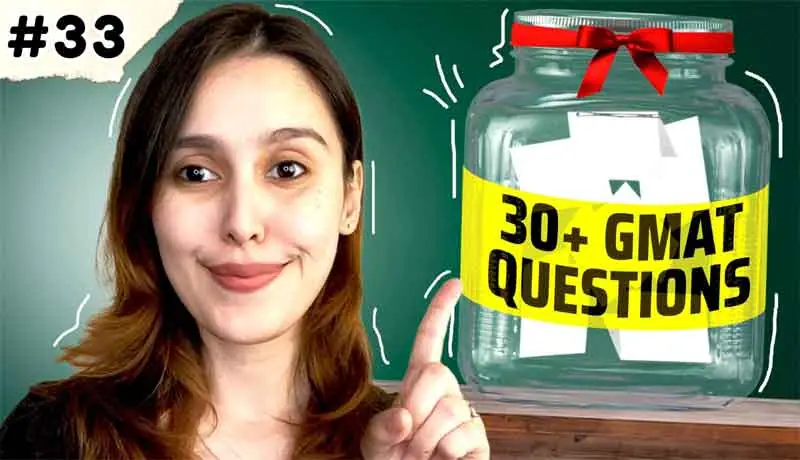There comes a moment during GMAT prep when the books blur, motivation dips, and doubt creeps in. Sound familiar? It’s not just about mastering quant and verbal, it’s about navigating the emotional rollercoaster that comes with high-stakes preparation. And this is precisely where GMAT coaching steps in, not as a crutch, but as a compass. Emotional resilience often decides success more than intelligence alone. That’s why recognizing the emotional advantages of structured coaching could be the best move one makes.
Here are eight deeply personal and often overlooked emotional reasons why GMAT coaching isn’t just about scoring higher, it’s about rising stronger.
1. Structure Replaces Stress
Lack of structure breeds confusion. GMAT aspirants often jump between study materials, feeling lost in a sea of content. This chaos fuels anxiety.
GMAT coaching brings a structured path tailored to pacing, milestones, and personal aptitude. A clear roadmap eases mental clutter, converting stress into steady progress.
2. Expert Guidance Brings Emotional Assurance
Imagine standing at the edge of a cliff, unsure of the next step. That’s what the GMAT can feel like without mentorship. Coaches aren’t just teachers, they’re emotional anchors. They reassure, redirect, and reignite belief.
Hearing, “You’re not alone. Others have faced this and succeeded,” can often make the difference between giving up and pressing forward.
3. Overcoming the Fear of Failure
Fear paralyses. Fear of failure is one of the biggest emotional blocks for test-takers, where academic success is often linked with self-worth.
GMAT coaching demystifies failure. Instead of viewing a mock score as a verdict, it’s treated as a data point. Coaches teach how to analyze errors, not fear them. Over time, this mindset creates a healthier emotional response to setbacks.
Tip: Embrace mock test results with curiosity, not dread. The right coach will help break down the “why” behind every score dip.
4. Accountability Reduces Procrastination
Left alone, even the most ambitious student might procrastinate. But when someone checks in on progress, missed study hours turn into conscious commitments.
Coaching creates a system of emotional responsibility. It’s not just about impressing a tutor, it’s about not letting oneself down. This shift boosts consistency.
5. Celebrating Small Wins Builds Confidence
Preparation can be draining when progress feels invisible. GMAT coaching breaks the journey into achievable chunks. Celebrating a high sentence correction accuracy or a 20-point jump in mocks uplifts spirits and builds confidence.
Confidence isn’t a result, it’s a muscle built with every minor win. Coaches ensure these wins aren’t overlooked.
6. Community Counters Isolation
Studying for the GMAT can often feel isolating, especially for working professionals juggling jobs and prep. However, coaching often includes peer groups, study circles, or WhatsApp support groups.
Suddenly, it’s not a solo battle. It’s a shared mission. That camaraderie provides emotional relief, lightens the mental load, and even introduces friendly competition.
GMAT Prep Isn’t Just Academic, It’s Social.
| Emotional Benefit | How Coaching Helps? |
| Reduced loneliness | Group calls, shared success stories |
| Motivation boosts | Progress comparisons & team challenges |
| Encouragement | Peer shout-outs & shared milestones |
7. Visual Progress Reinforces Emotional Resilience
Graphs don’t lie. When a coach shows how one’s mock scores have improved over weeks, even subtly, it’s more motivating than any pep talk.
Progress charts serve as emotional proof. Seeing an upward trend, no matter how small, proves that effort isn’t in vain.
8. Belief Transforms Into Performance
There comes a point when technical preparation meets emotional readiness. The latter often wins. GMAT coaching continuously feeds belief into the student, replacing self-doubt with quiet confidence. When belief is aligned with preparation, performance naturally follows.
A well-watered plant doesn’t just survive; it blooms. Coaching is that emotional nourishment.
Final Thoughts
While the GMAT undoubtedly demands intellectual rigor, its deeper test lies in the emotional resilience it calls for, patience during plateaus, perseverance through pressure, and belief when self-doubt creeps in. It’s more than a numbers game; it’s a journey of self-discovery.
In moments of uncertainty, coaching becomes the voice of clarity. When motivation fades, it reignites purpose. And when the goal seems distant, it reminds students how far they’ve already come. Ultimately, GMAT coaching doesn’t just boost scores, it restores confidence, reinforces commitment, and turns a daunting challenge into an achievable mission.





